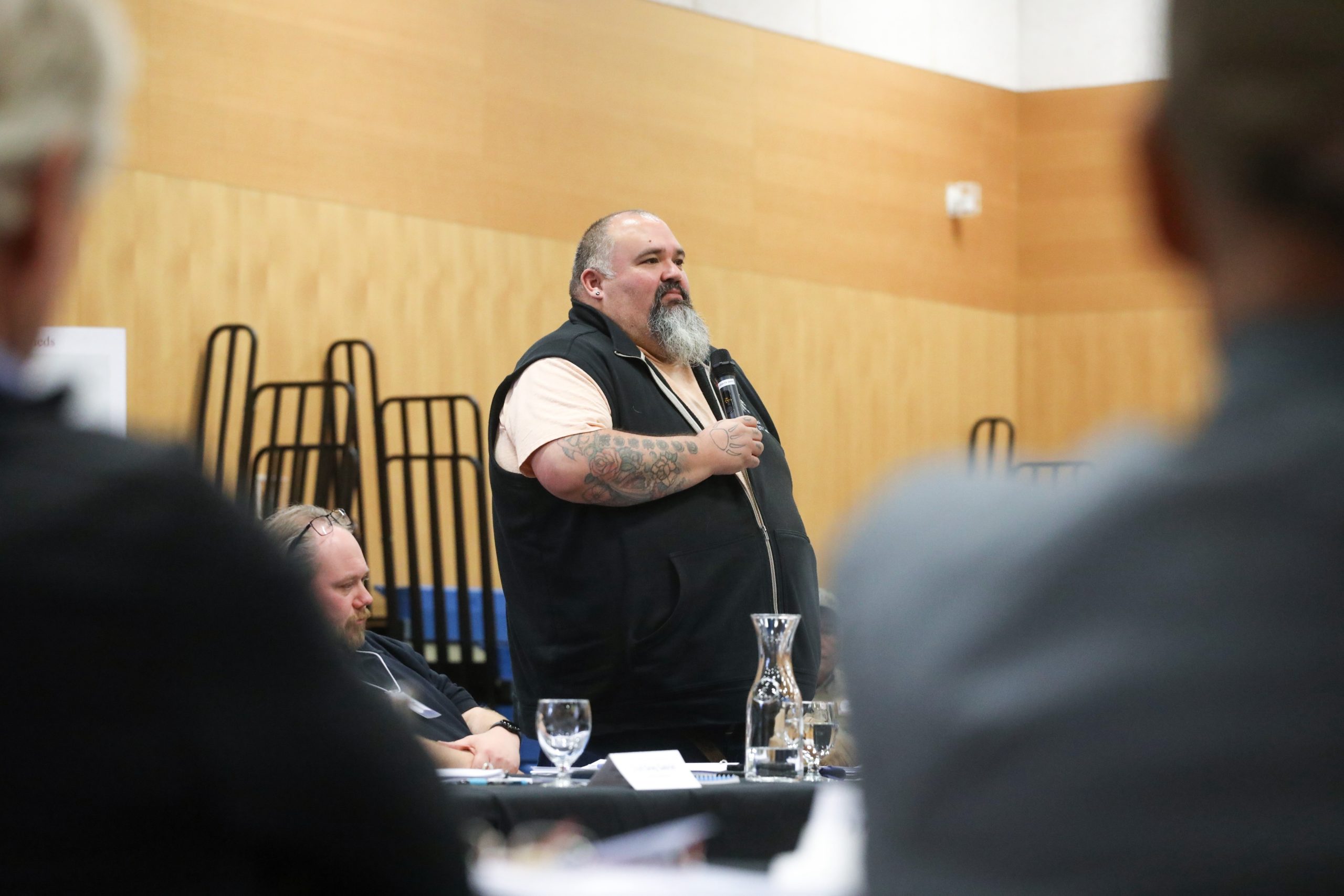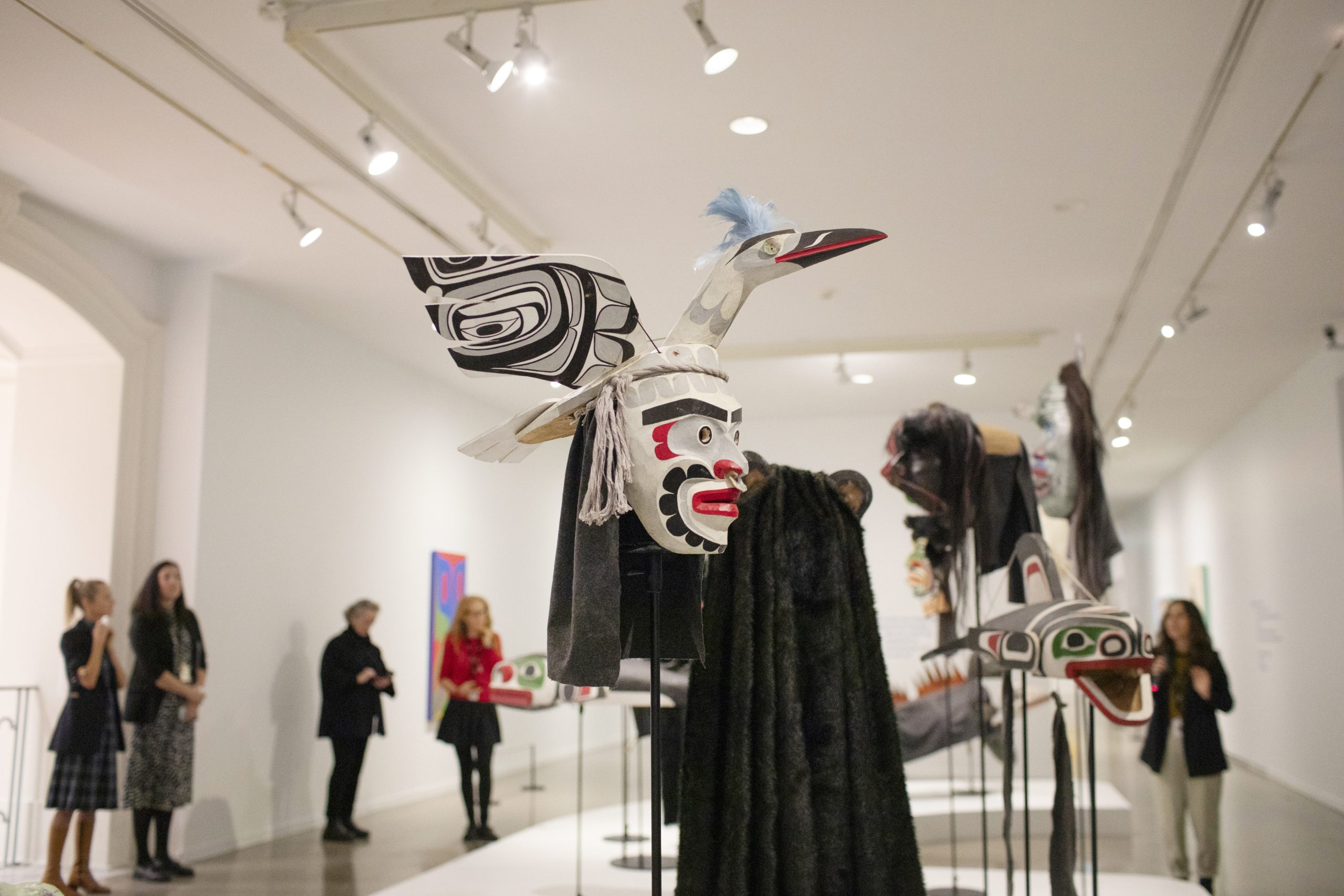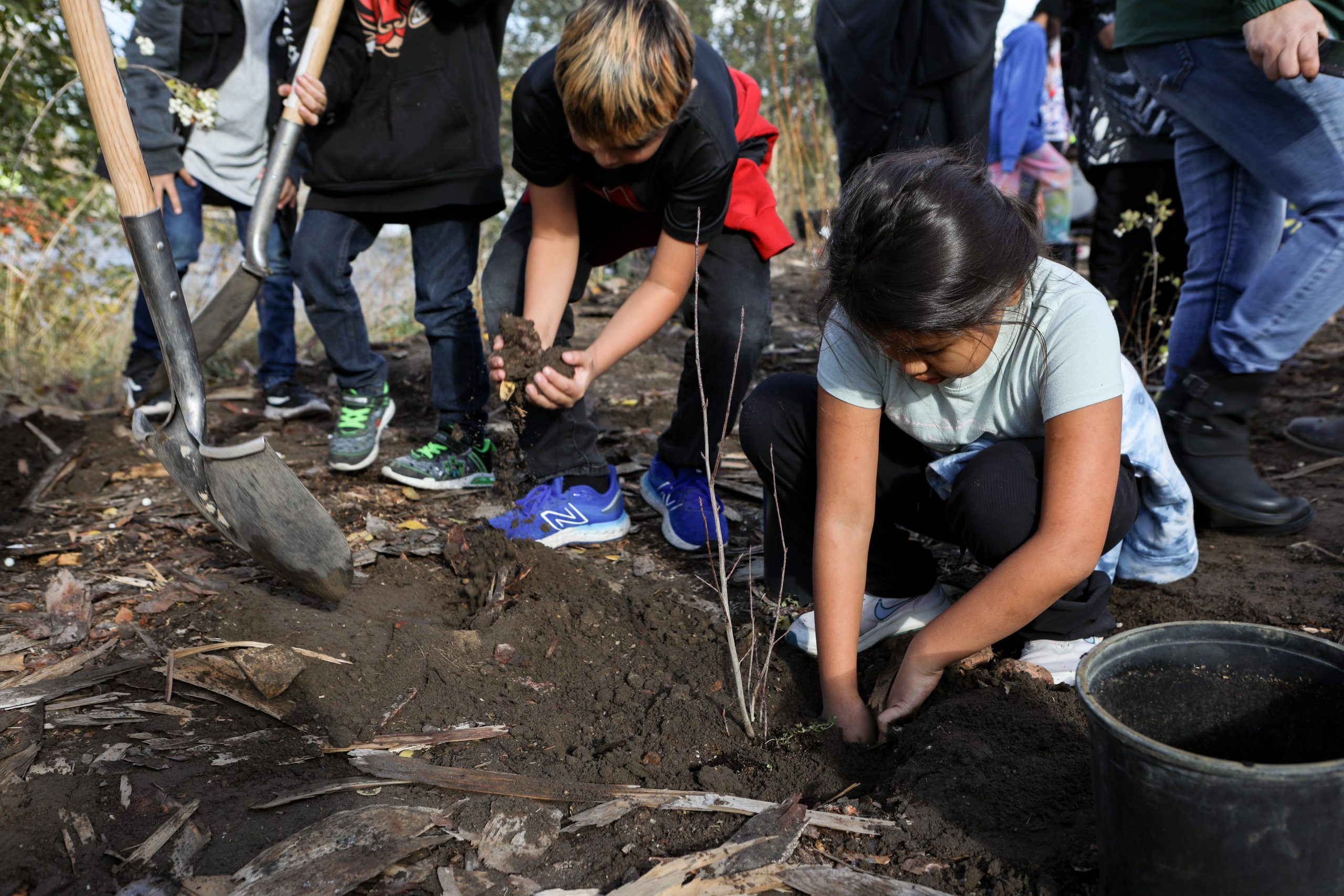‘Every kilometre I run is for a life that was taken,’ says Indigenous man committed to running 216 kilometres to support survivors
‘I’m running for the kids, for my family,’ says Sasha Perron who will end his 216km run at the Victoria legislature on July 1.
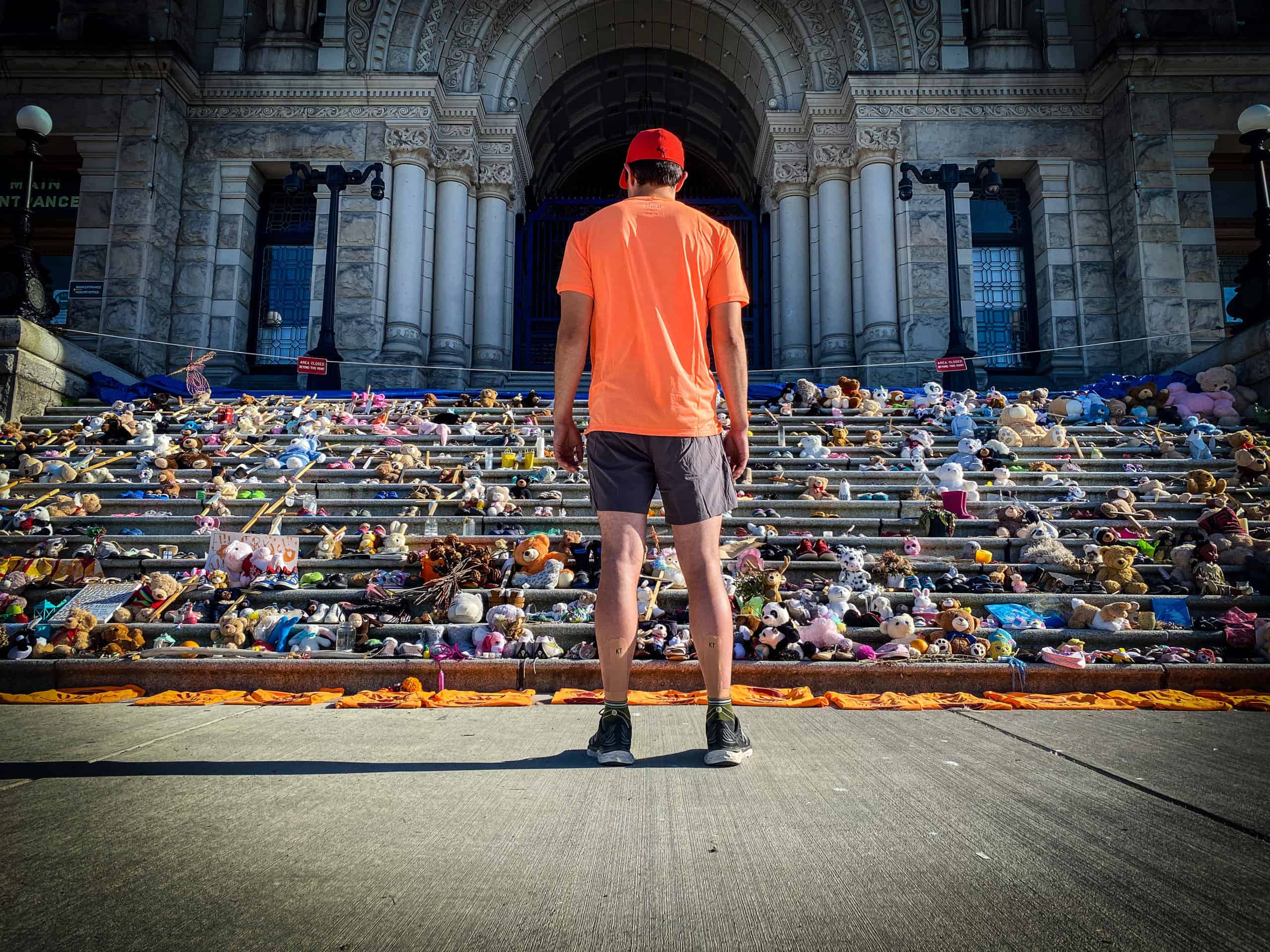
This article contains content about residential “schools” that may be triggering. IndigiNews is committed to trauma-informed ethical reporting, which involves taking time and care, self-location, transparency and creating safety plans for those who come forward with stories to share.
Kasalas Sasha Perron calls together the small group of runners who gathered in front of the Victoria legislature building to say a prayer before they take off for an hour-long run in the hot June afternoon heat.
“May every step you take lighten the grief,” Perron says.
Perron, 26, is Kwakwa̱ka̱ʼwakw from the Da’naxda’xw First Nation. His mother and maternal grandfather and other family members attended a residential institution in Port Alberni. When he first heard the news of the 215 Indigenous bodies buried at the site in Kamloops, he felt a stirring inside of him — he needed to do something.
Perron got word about a man named Brock Fraser who dedicated to running 215 kilometres to honour the 215 children found, who raised $55,025 in support of survivors.
Perron felt inspired.
“I wanted to do something other than, you know, just posts on Facebook, then I saw Brock’s run, and that’s where the idea came from,” he tells IndigiNews. “I thought, he’s doing it, maybe I can do it.”
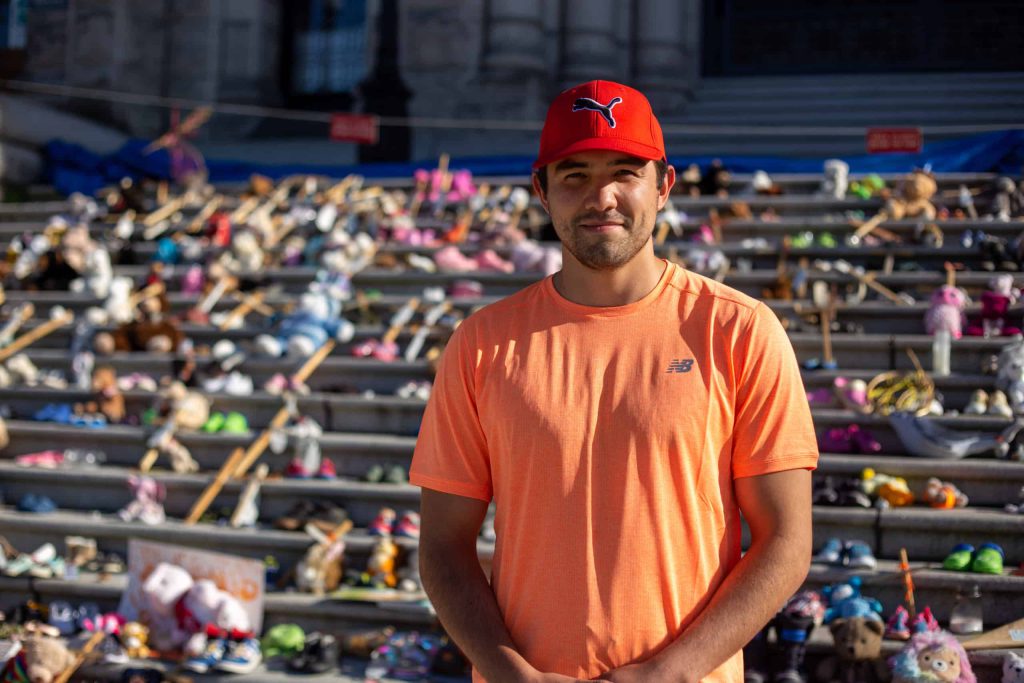
His goal was to support survivors, by also raising money dedicated to healing services, but also to support his own family, inspire them, and to invite people to heal with him on his journey.
“I’m running for the kids, and for my grandpa, my family,” he says.
‘Movement is medicine’
Perron committed to running 215 kilometres before July 1. He started his first run on June 12, and has been running almost every single day, anywhere from 5 to 20 km. He has invited anyone who wants to join him to run with him, and he’s met many people along the way.
“My main goal was to try and bring people together to collectively heal and tell our family’s stories,” Perron says. “Giving the people the chance to feel that energy and to run for purpose, for their families… I felt that energy and wanted other people to feel it as well, it’s pretty healing.
“Movement is medicine,” Perron says, whether it’s running, biking, swimming, canoeing, picking medicines, movement “clears your mind, gives you space to think, connect to the Creator and to the Earth.
“It gives you clarity and guidance,” he says.
Two Indigenous men, Mark Andrews and Dakota Sun Dakota Sun Knïfe joined him on Thursday, along with Laura Lockwood, meeting him in front of the legislature building where a memorial has been placed, where hundreds of stuffed animals, candles, and orange shirts blanketing the stairs.
Knïfe heard about Sasha from Andrews who reached out to a few friends and shared his story.
“That day I was thinking of how I could contribute to the cause, and sure enough my buddy asked us,” Knïfe tells IndigiNews. “I thought it was amazing what he’s doing and how he’s raising money by running 216 kilometres — it was more than enough for me to join and bring awareness to others.
Knïfe is Plains Cree of the Treaty 6 territory from the Ahtahkakoop Cree Nation and says he joined the run for his mother, grandmother, and ancestors, for those who were lost and those who survived.
“To strive by helping each other out and raising our voices so we can be heard is what it means to me,” Knïfe says.
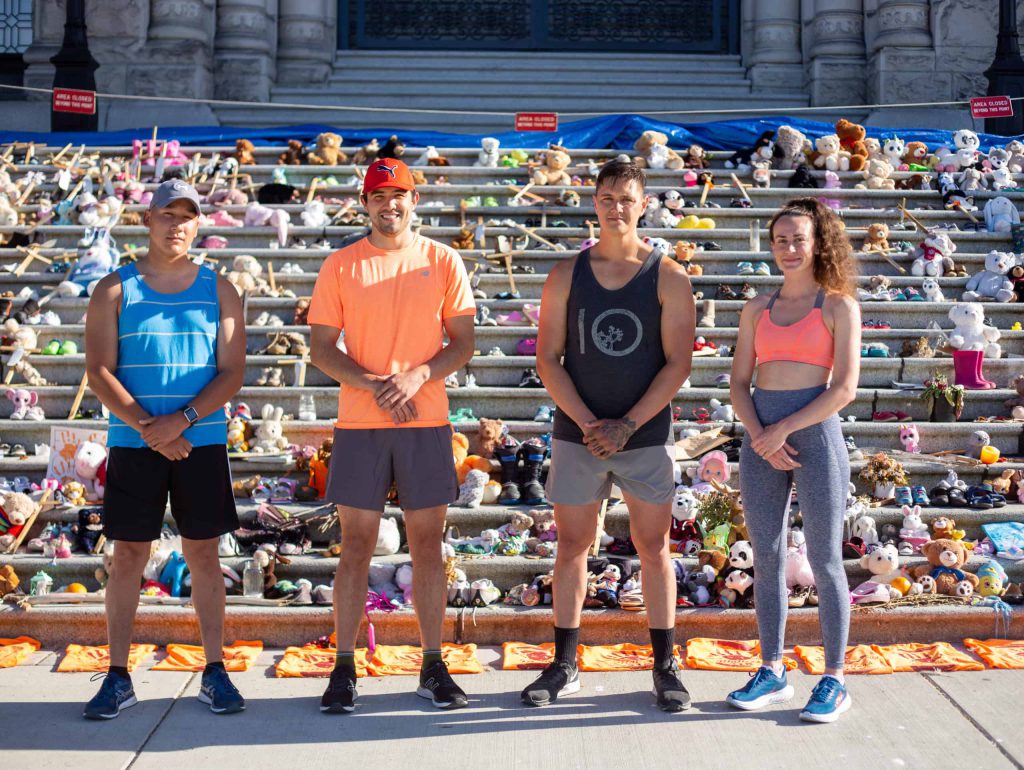
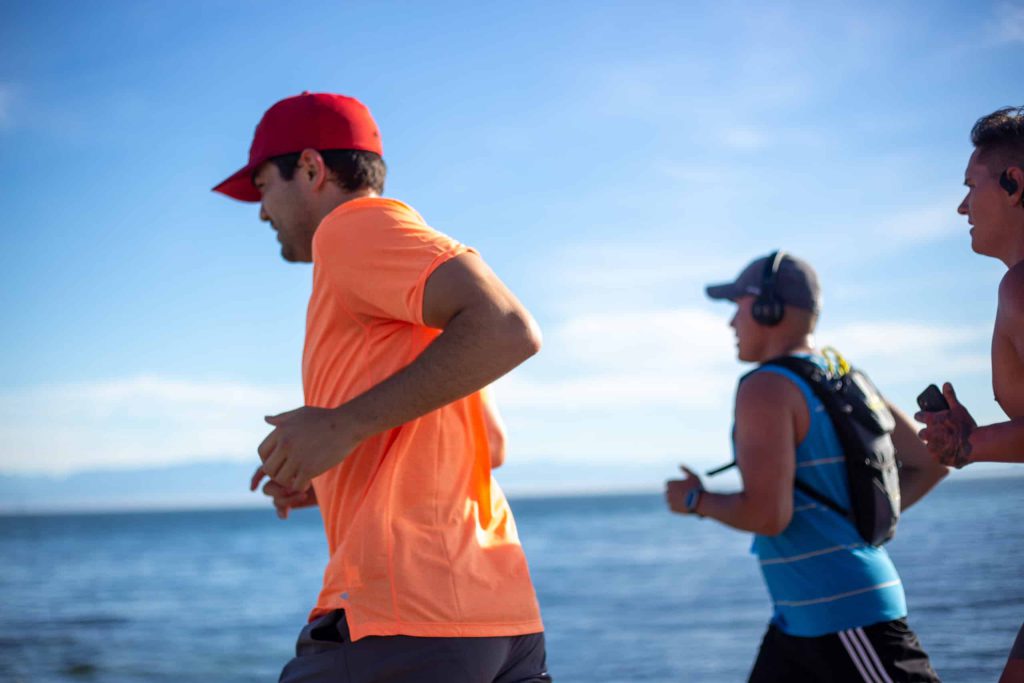
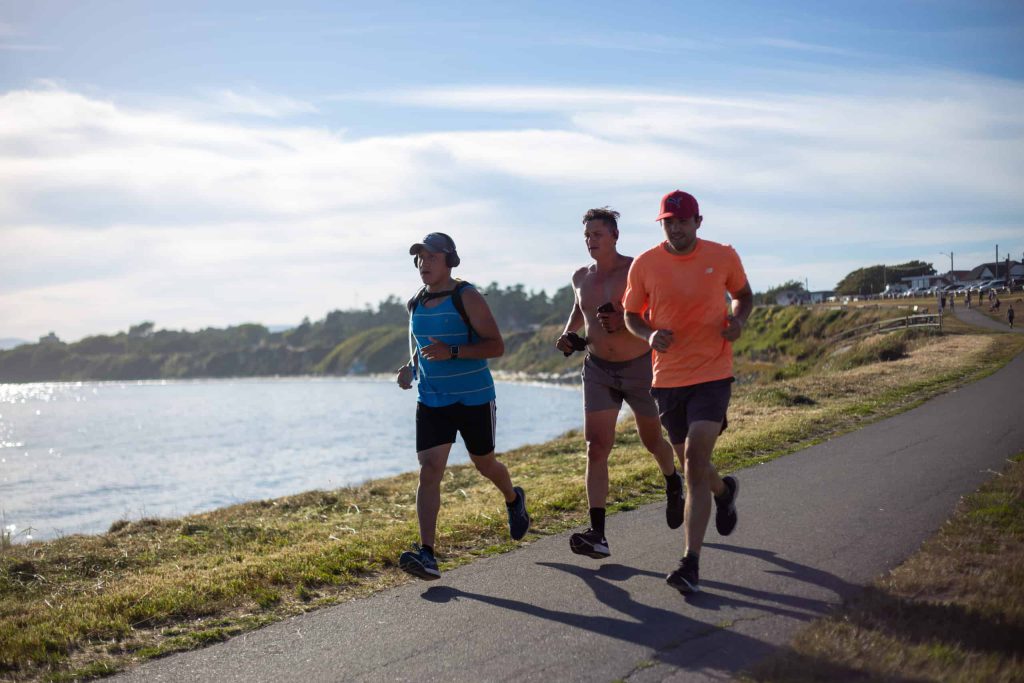
‘We’re still here’
As of June 25, Perron has run 161 km and has raised over $10,500 for the Indian Residential School Survivors Society. The journey has been far from easy, he says, but knowing that every kilometre run is dedicated to a life taken, makes it possible.
“How hard is my 215 kilometres, compared to the pain these families feel? It’s not comparable,” he says. “I’ve been praying and asking for strength from the Creator, and the children. I’ve been drawing strength from my family and the experiences my family has gone through.”
When he starts to feel the physical pain in his legs and the blisters under his feet, he thinks of how hard it must have been for Indigenous families to fight for their cultures.
“When I get into those moments, I tell myself I’m running for the kids, for my family, drawing strength from them to continue on and push through whatever pain I might be feeling,” he says.
He pushes himself harder when he has people by his side, he says, like his sister Melissa, who has joined him for a number of runs, but sometimes he’s alone, faced with the challenge of sticking to his commitment.
“When I’m running by myself it gives me time to reflect on my own pain, my own healing. Today was really tough,” he says. “I prayed to try and finish — ‘Creator, give my body strength, my legs strength to continue’ — it was an emotional run.”
Perron grew up playing hockey and he played for Missouri State University until he was 25. He says he ran “some,” but nothing like these past few weeks. He’s exhausted, he says, in his body and mind, but he’s riding the rollercoaster, knowing it’s all bigger than him.
“My mom is thanking me for what I’m doing for the survivors, and for her, and she’s telling me that my grandpa’s with me on the journey,” he says.
“I would love for anybody to be inspired by what I’m doing.”
Perron says his generation has a lot to work to do, to continue what the generations before have done.
“I think it’s about being proud of who we are, and knowing that we can achieve our goals, even though they are improbable, and not to be scared, because we come from strength,” he says. “Whatever you want to achieve, you really can, if you put your mind to it, if we have the drive, that purpose and the good intent.”
Perron plans to conclude his run on July 1 with a walk and gathering at the Victoria legislature.
When he’s not running or working at the BC Royal Museum “healing the database,” he has been busy driving around the island, inviting Indigenous leaders and community members from the South Island nations to join him for his 216th kilometre.
“The 216th kilometre will be to recognize our future leaders,” Perron says. “We’re going to have singing and dancing in front of the legislature. I think it’ll be a good way to tell everybody we’re still practicing our culture, to bring our strengths together and show everybody what our ancestors taught us, that we’re still here.”
A National Indian Residential School Crisis Line has been set up to provide support for former students and those affected. Access emotional and crisis referral services by calling the 24-hour national crisis line: 1-866 925-4419.
Within B.C., the KUU-US Crisis Line Society aims to provide a “non-judgmental approach to listening and problem solving.” The crisis line is open 24 hours a day, seven days a week. Call 1-800-588-8717 or go to kuu-uscrisisline.com. KUU-US means “people” in Nuu-chah-nulth.
Author
Latest Stories
-
‘Bring her home’: How Buffalo Woman was identified as Ashlee Shingoose
The Anishininew mother as been missing since 2022 — now, her family is one step closer to bringing her home as the Province of Manitoba vows to search for her
-
Pimicikamak faces long road to repair after havoc-wreaking power outage
As the military is ordered to help the northern ‘Manitoba’ Cree community, AFN leader says ‘emergency deployments cannot become the standing response to chronic infrastructure gaps’
-
Why aren’t there more Indigenous foods in ‘Canadian’ grocery stores?
Indigenous foods are varied, delicious and plentiful — but getting them to customers can be a challenge for small producers





